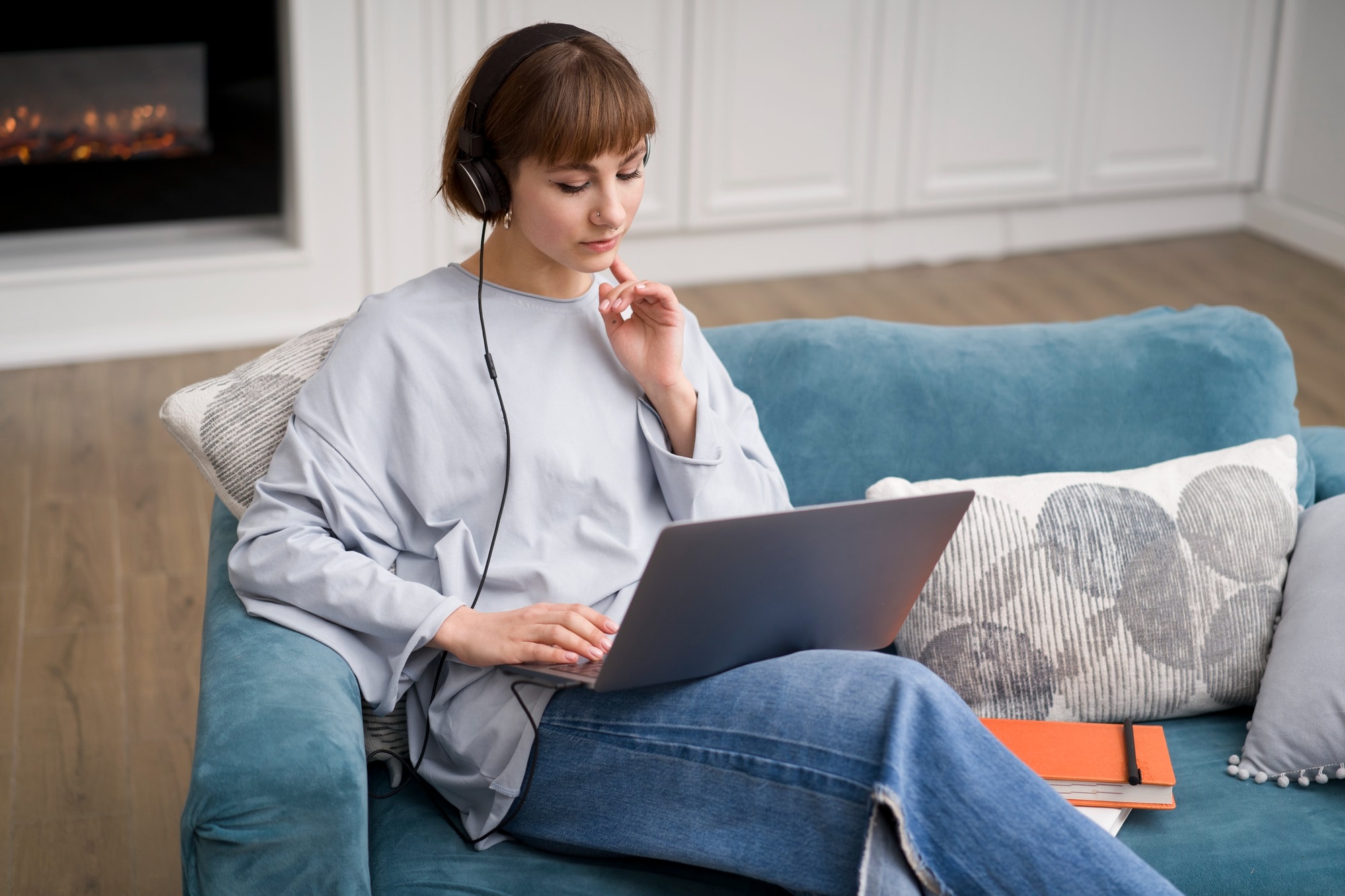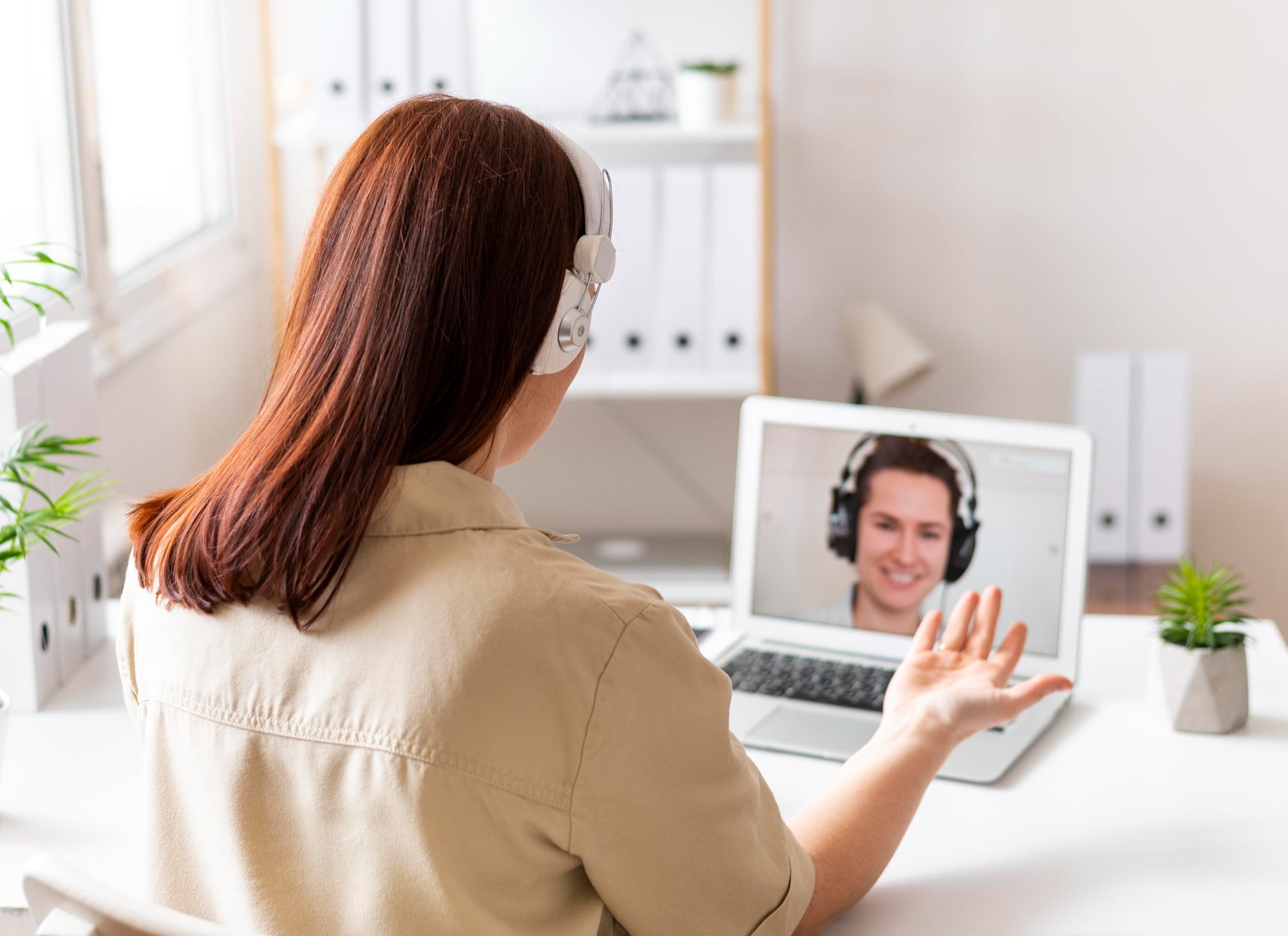Is Online Therapy Effective Compared to In-Person Therapy?
Last Updated on March 31, 2025 by Prath

COVID has popularised online therapy – and for a good reason.
After a long, busy day at work, travelling to yet another location takes solid mental and physical effort. It takes effort to dress up, leave all the household chores behind, and pay extra for food or car rental.
Many also find that online therapy is just as effective as in-person. To examine these claims, researchers created a study in 2020 and concluded that online counselling, mainly using cognitive behavioural therapy, is just as effective as traditional.
However, examining whether online counselling works for you is important before you take the research results at face value.
So, in this article, we’re talking about the effectiveness of online counselling, exploring the pros of both modes and looking into 4 considerations to make a decision.
We have witnessed a digital revolution in the field of mental health. Not only does everyone have access to seeking therapy virtually, but it’s now also possible to find subsidised or cheaper therapy options (that are just as effective).
Here are some results of research that has studied the effectiveness of online therapy:
These studies were monumental in refuting the myths about online counselling. Now, let’s look into the pros of online and in-person therapy and decide which type may work best for your needs.
People may choose online therapy in Singapore for many reasons.

In-person therapy in Singapore can be beneficial in many ways.
After looking into the pros of both modes, you may still be confused about which option you should choose.
Sometimes, we may be influenced by external influences.
Your friend may go to online therapy, so you feel compelled to choose the same route. Or, you’ve perhaps only encountered positive reviews of in-person therapy and feel hesitant to choose any other option.
Feeling confused is normal. There are only two things you may have to keep in mind while deciding:
For example, let’s assume that you choose in-person therapy first because you like talking face-to-face, and travel isn’t a hindrance. Later, you find out that you do not have the means to leave the house – maybe you need to take care of a pet or are too physically tired to move around.
In such cases, at TYHO, you can also switch to online therapy with the same Therapist.


To consider if online counselling is for you, you should think about it from a personal and practical point of view.
Here are some general questions you can ask yourself:
If all your responses to the questions are positive, then you may be ready for online counselling.
However, if you’re still hesitant, you should have a deeper look. Below are some essential considerations that can help you make a decision.
Have you previously attended online counselling?
Have any of your family members or friends attended online sessions?
If yes, ask around about their experience. Learning how online sessions work for others can give you more insight and clarity into your needs and expectations.
If your friends are comfortable sharing, you may also want to check what issues they’ve sought help for. Rather than going into detail, you can also ask for a general overview.
Was it for life stressors such as conflicts with mother, relationship issues, or for specific conditions like borderline personality disorder?
During the conversation, you can also talk about:

The type of therapy you choose can also affect whether online counselling is as effective as traditional.
On the one hand, cognitive behaviour therapy is already well-researched and has proven benefits while conducted virtually. In fact, studies also indicate that virtual CBT may work better than in-person for issues like anxiety.
On the other hand, art therapy or somatic therapy may work best when conducted in-person. Movement-based appraoches may also require the therapist to be present in the same room as you.
If you struggle with issues like depression, anxiety, relationship problems etc, online counselling may be right for you.
Are you ready to attend online sessions?
Your readiness and willingness to attend sessions can also directly affect the effectiveness of online counselling.
For example, some people may be eager to explore and learn more about themselves in therapy. For these people, online therapy can result in positive outcomes.
Others may try therapy as a favour to a loved one or because they were persuaded to seek support. In such cases, the individual may not be completely open to new ideas or ready to address some of their personal issues. Online therapy may not be as effective for people who are not prepared.
A primary concern with online therapy is that not everyone has high-speed internet.
Lack of a good internet connection can sometimes get in the way of communicating or expressing effectively.
If you face internet issues once or twice, it may not affect your sessions drastically. However, if you face this problem frequently, you may start to feel annoyed, which can result in a lack of progress in online therapy. It’s a cycle effect.
In conclusion, online counselling in Singapore can work for you if:
Online therapy is just as effective as in-person therapy. The effectiveness of any modality or mode depends on your readiness and proactiveness during sessions.
If you are ready to book your first session, review TYHO Therapist profiles and find someone who best suits your needs.
Remember that therapy takes a lot of trial and error. If a Therapist isn’t the right fit for you, you can work with someone else. Reach out to us at [email protected] if you need help choosing a Therapist!
